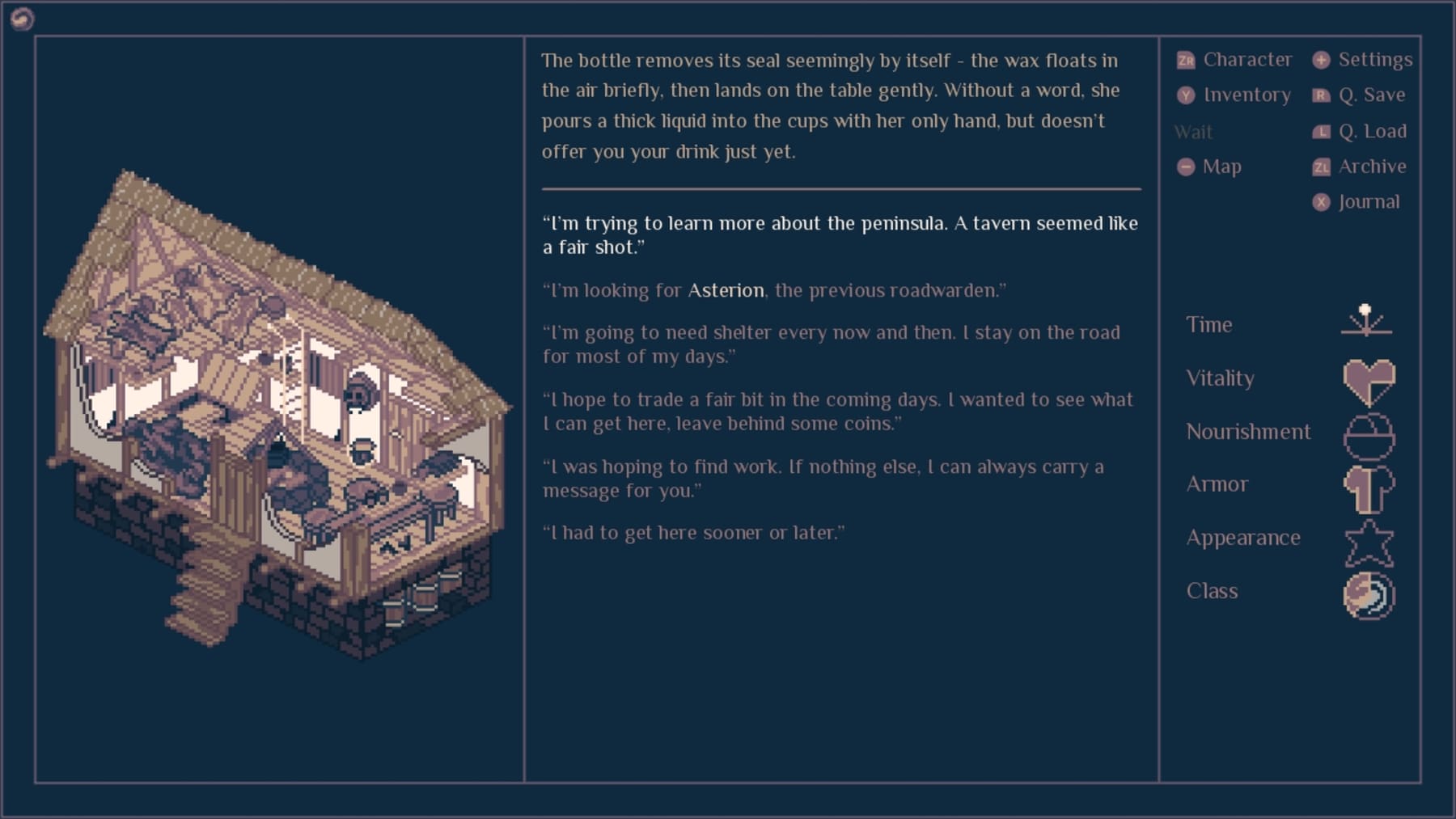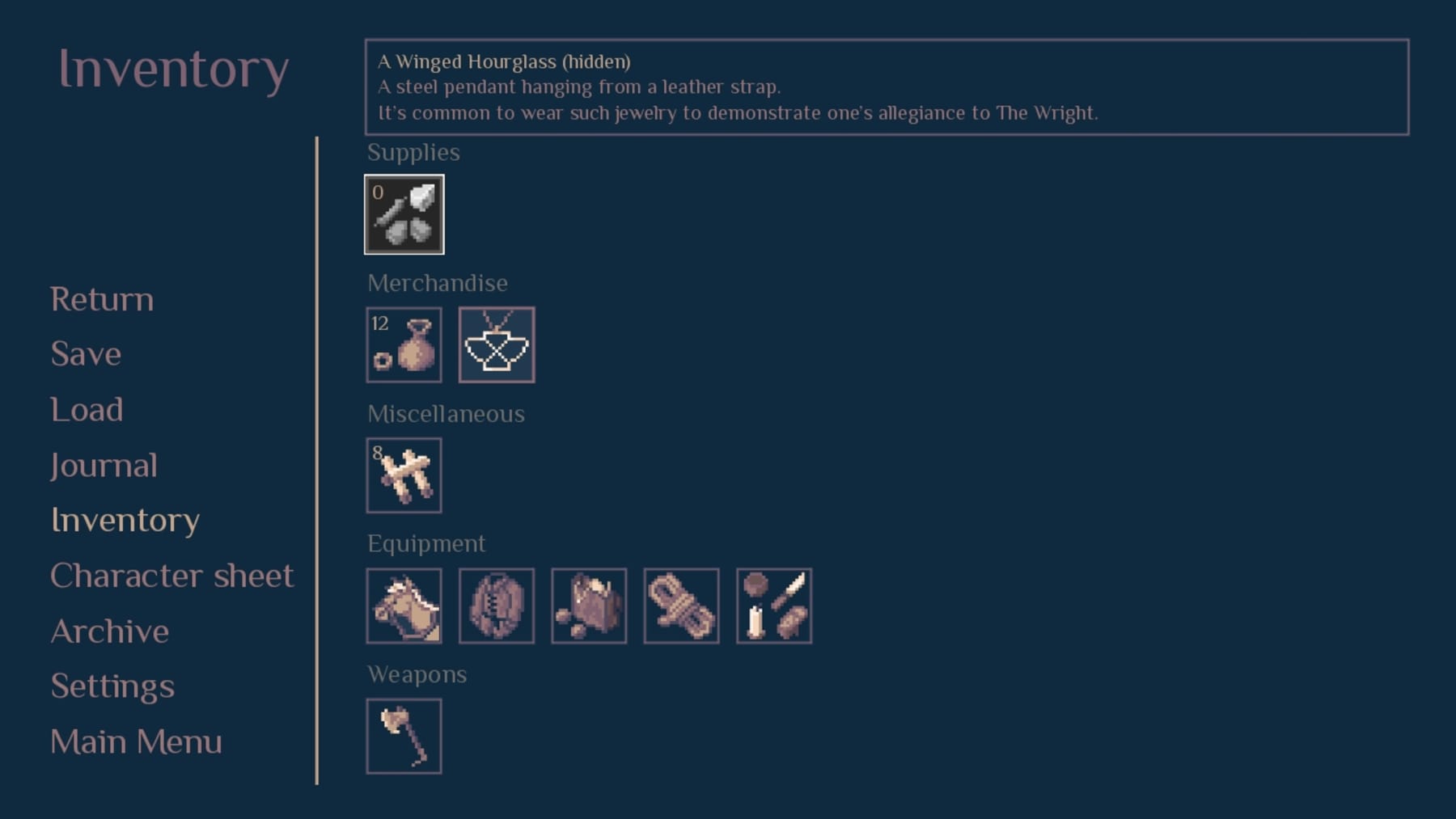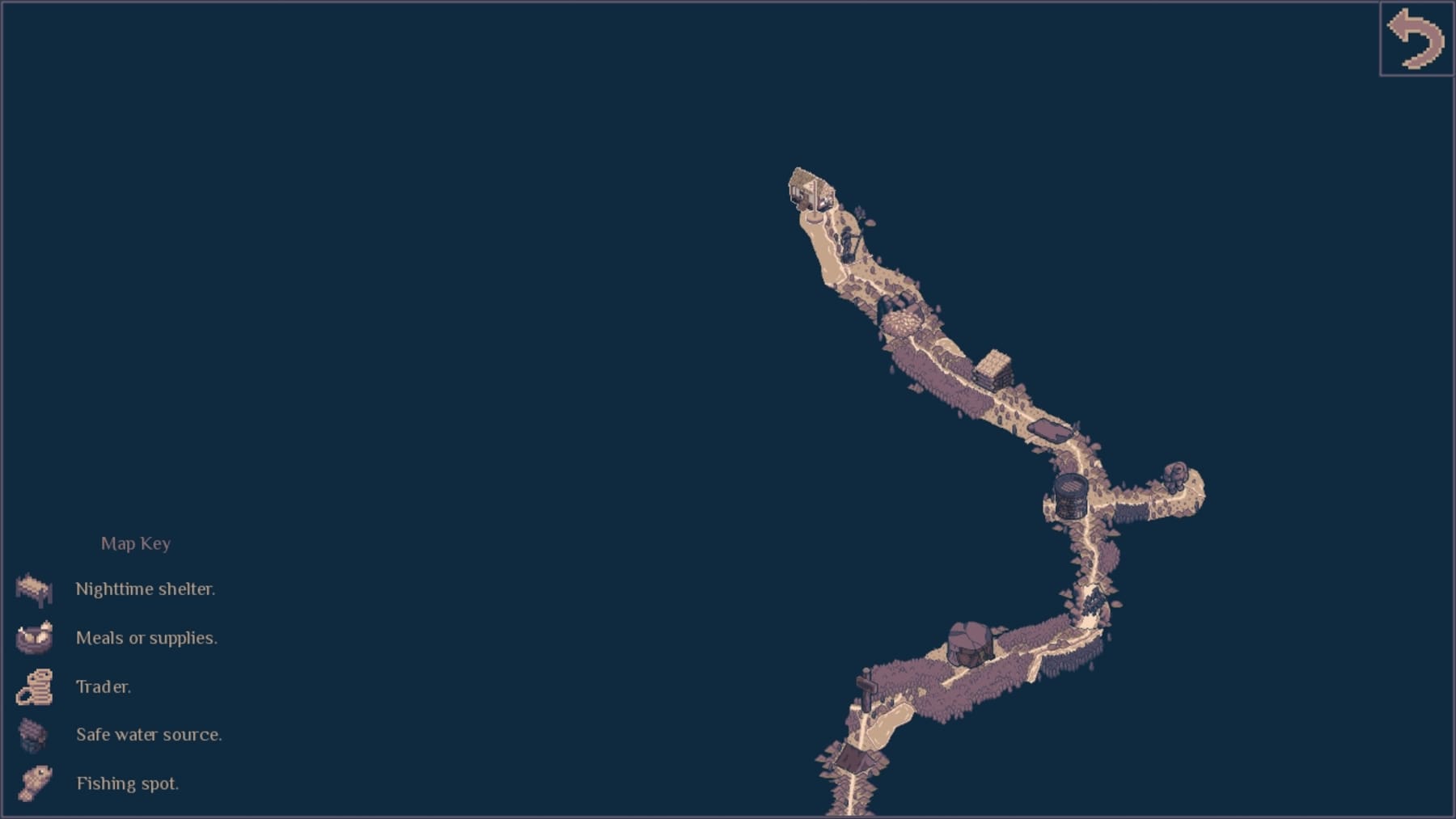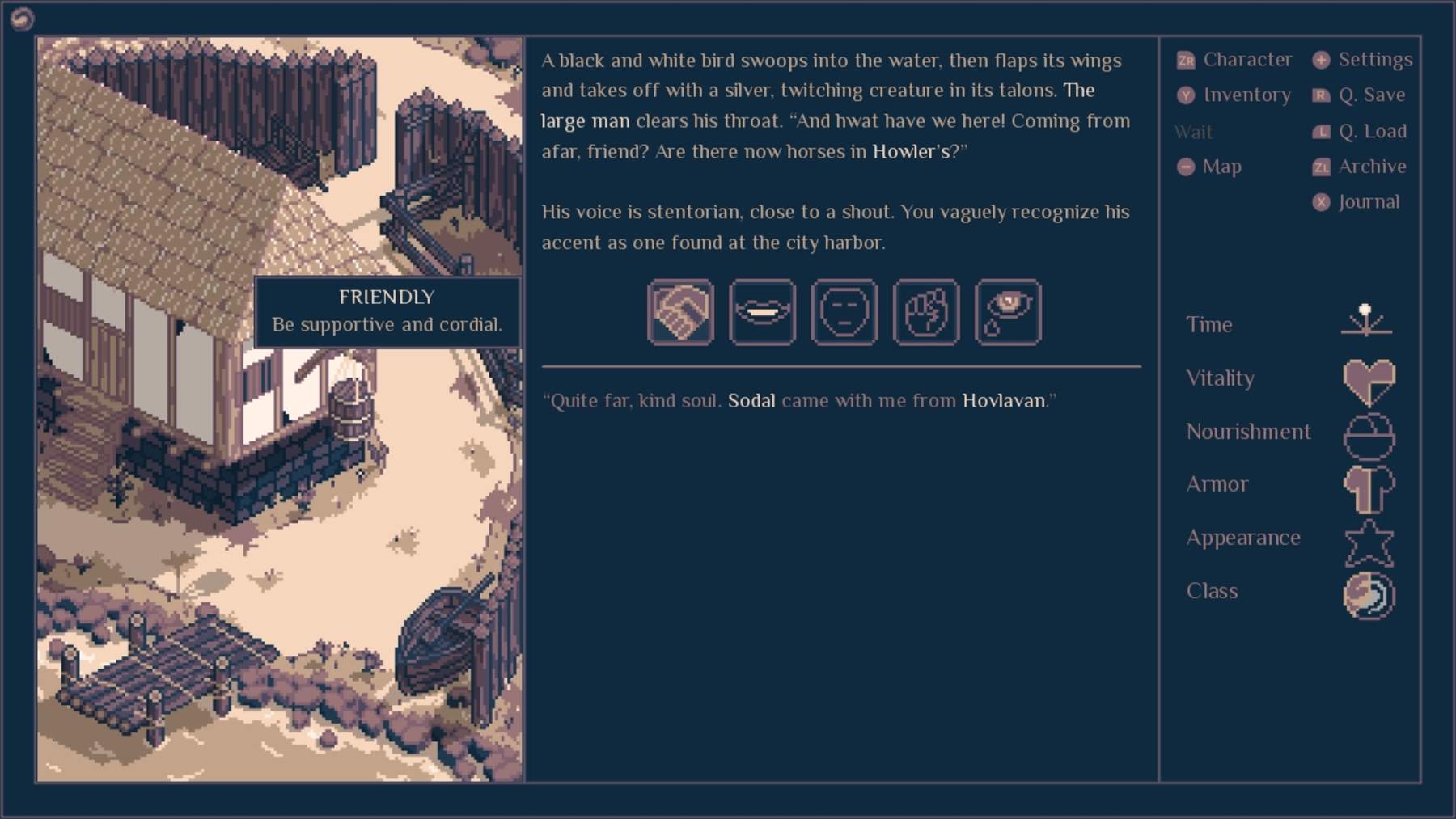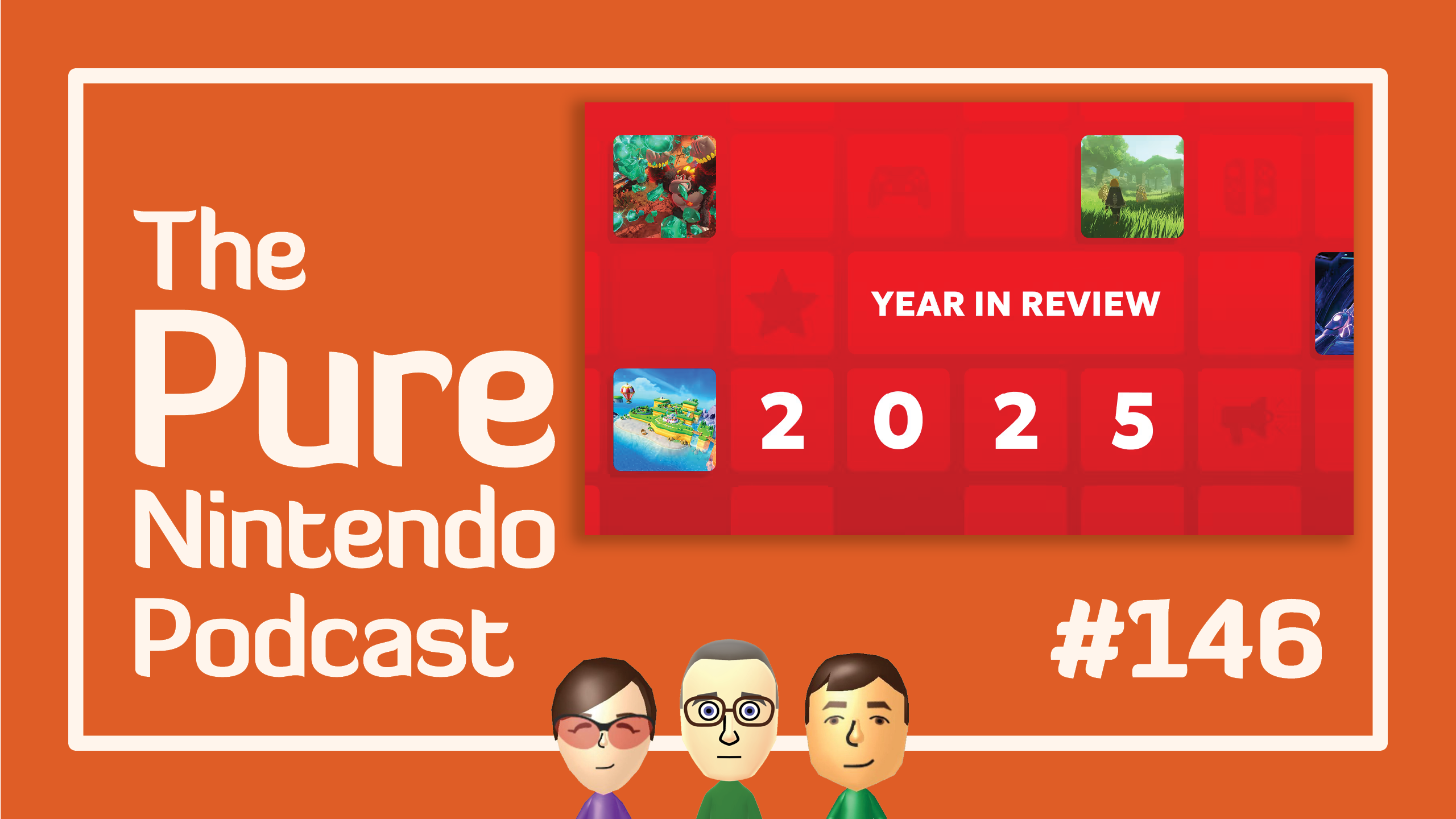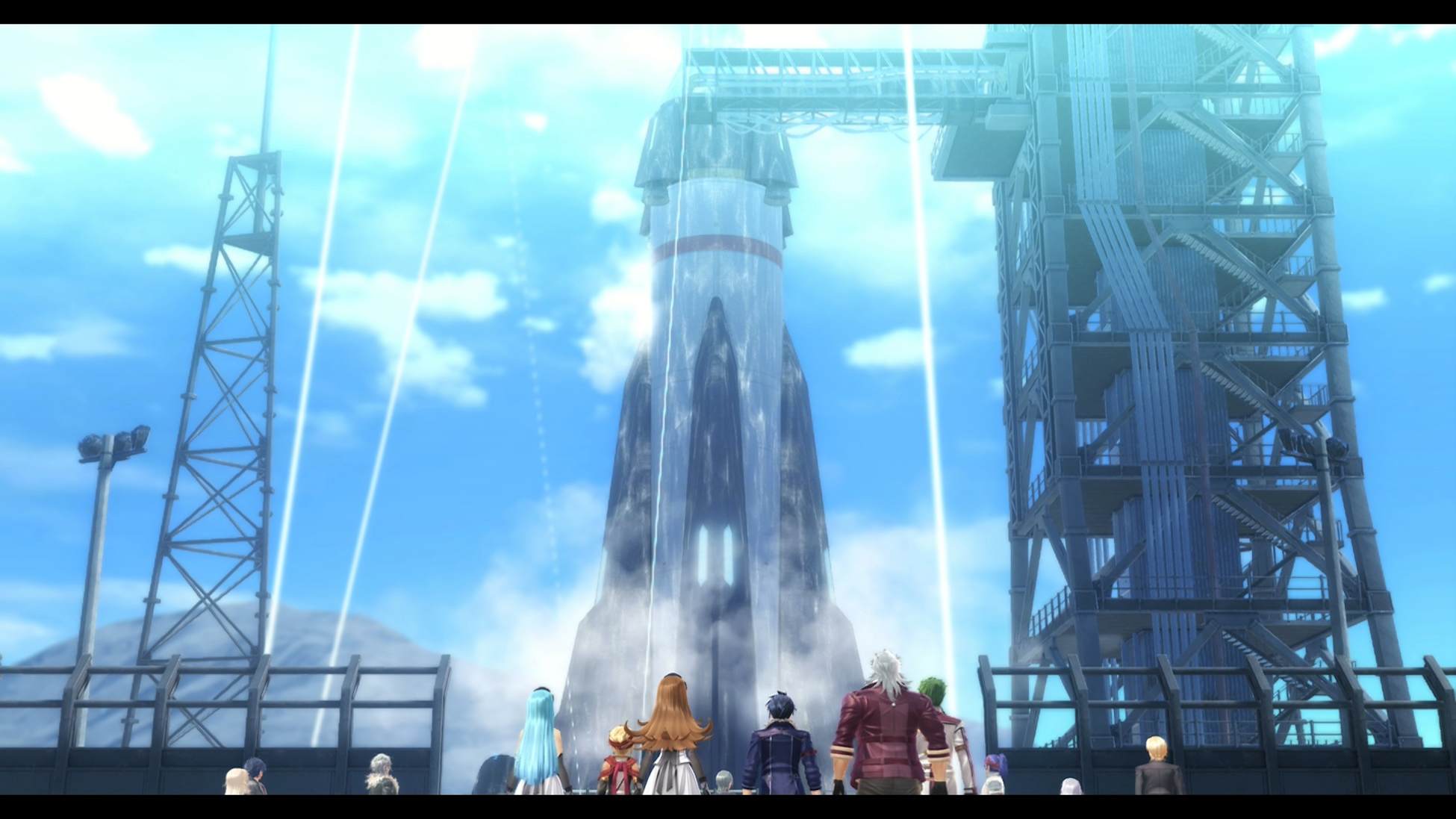Review: Roadwarden (Nintendo Switch) – Pure Nintendo
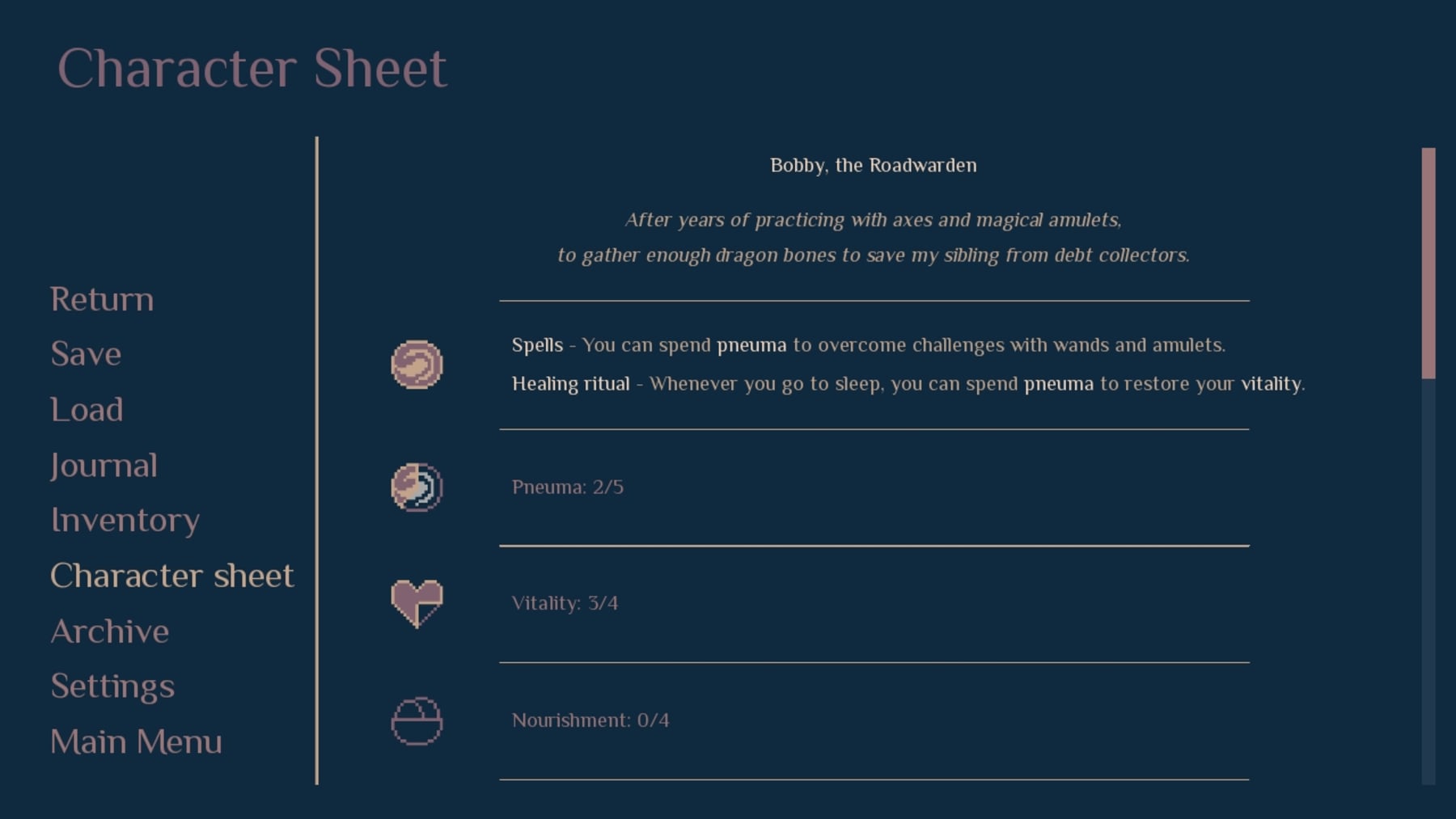
Roadwarden is a retro-RPG that’s been made with a lot of care. Primarily text-based, it’s a story of exploration, survival, and mystery wrapped in a low-fantasy blanket. With its detailed writing, it attempts to put you in the well-worn boots of a lone adventurer in a strange, forbidding world. It’s a story that succeeds, but it’s hobbled by the limitations of the Switch interface.
You play as a Roadwarden, and your job is to secure the savage roads of a peninsula for travelers and traders. With only your horse and skills (more on that in a bit), you start exploring, finding what few settlements remain (and the remains of those that don’t), fighting beasties, and encountering the weird and strange artifacts that dot the land (“Oh, a giant tree, partially submerged in front of a stone altar? This merits attention…”)
The setup of the game offers you flexibility and replayability. You can choose your class (Scholar, Mage, or Warrior) and various starting perks, as well as your background and motivation, which can give you bonuses to interactions throughout the game. The merchant’s guild has sent you, but what’s your real reason for exploring? What do you hope to gain? Are you an altruist who seeks to help the human colonies connect, or… something else?
Once you start on the road, the first movement of the game is about exploration and worldbuilding. Set in a Dark-Ages-esque kingdom of magic and monsters, you’ll encounter the humans who eke out a living by whatever means they can. Dialogue is mostly decision-tree based; you see the list of topics you can ask, and most of the time you’ll get a stock answer. Sometimes people will refuse to answer questions until they trust you more or you offer something they want in return, but your tone can also affect these relationships. Do you want to make a joke or take a sterner tone, leaning on your authority? These decisions will matter because while there’s a lot of exploration to be done in Roadwarden, and you’ll come back to the main settlements time and again, unlocking information that wasn’t available before. If you survive, that is.
Because a big component of Roadwarden is survival—not just survival in combat, but the day-to-day hassle of keeping your mind and body together while living in that world. You have not just your health to worry about, and the condition of your armor and weapons, but also your nourishment (don’t starve to death) and your cleanliness. Diseases can kill, sure, but failing to bathe (with soap, a consumable resource) can affect your interactions.
The tone of Roadwarden is so incredibly strong. The text (and there’s a lot of text) spells out not only what you’re dealing with, but the feel of being there: body language, smells, the vibe of the weird, burnt-out fields you’re forced to wander. In addition, the nearly-monochrome pixel art that accompanies the words really adds an oomph! to it all. You come across a destroyed settlement, but a fog of war only reveals the part of the town that you’ve chosen to explore. Do you go around or through? It smells terrible, your stomach is turning (are you getting sick?) and the sun is getting lower in the sky.
That’s another aspect of the game to keep track of: time. Sure, your job is to tame the roads, but don’t be foolish enough to think you can spend the night outdoors. You can ride from town to town during the daylight, but make sure you find a safe spot to stay at night. And there’s another ticking clock; you only have 40 days to explore before you must return to the merchant’s guild and give your report (and solve whatever other agendas you may have).
All of this is incredibly immersive for a game with such a minimalist presentation, but the biggest problem is that it runs into its greatest foe: the Nintendo Switch interface. Roadwarden has a lot of information to keep track of: all of your stats, your equipment, the time of day, the map, the dialogue, and your on-screen decisions. And figuring out how to highlight the thing you want to do is a freaking pain. You can use the left stick to move about the screen to what you’re trying to select, but if you’re not using the left D-pad, you’re a fool.
It’s incredibly frustrating to be at a crucial decision point and finally make your choice, only (bottom center) to find that the game is concerned that you don’t remember what your character name is or your class (upper left). Why are you telling me my armor is half-gone (which I can see on the middle right) when I’m trying to tell the merchant the gossip I discovered? And don’t even get me started on trying to move out of a location and into a new, unexplored area on the map.
Another big problem is that on my series-one Switch, the selections frequently just don’t register. I have it highlighted, I hit the A button and…nothing. The other issue, of course, is that Roadwarden is a text-based game, and for my Old Guy Eyes, playing it on the switch screen is a recipe for headaches and eyestrain. Docked has to be the way to go.
Also, you’ll want to keep a notebook handy. Roadwarden is a game of details and names. The text will bold names and concepts that are important (and keeps them in an in-game journal you can refer to), but there’s so much information that you’ll need your own, real-world resources to keep track of what’s important for use in the dialogue trees where you can type in your own actions and topics (another area in which the Switch interface isn’t ideal).
That being said, Roadwarden’s contained world offers a lot of entertainment to those who take the time to explore (and re-explore) every nook and cranny.

